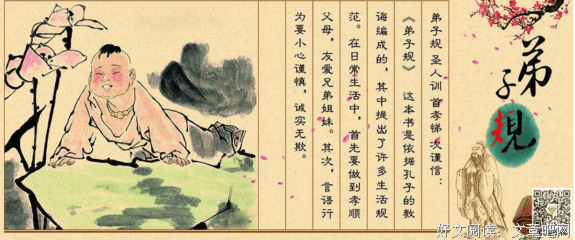
《Lady Chatterley's Lover》是一本由D.H. Lawrence著作,Wordsworth Editions Ltd出版的Paperback图书,本书定价:GBP 2.50,页数:304,特精心从网络上整理的一些读者的读后感,希望对大家能有帮助。
《Lady Chatterley's Lover》精选点评:
●Natural love~Childish individual
●Great great great book.
●曾经著名的禁书,其实不过如此。
●#tenderness# It seems to me absolutely true, that our world, which appears to us the surface of all things, is really the bottom of a deep ocean. But sometimes the soul does come up, shoots like a kittiwake into the light, with ecstasy, after having preyed on the submarine depths.
●请问情色在哪里
●我把它当成了情色小说看了~
●字里行间不见文学词藻 失望
●love affair+social comment, the structure of the narration is a little bit all over the place, and I hate omnipotent third-person point of view, but nevertheless this is very pleasant reading. Plus, the sex-related terms back then were really funny :D
●In my adolescence it embarrassed me. Now I've been trying to comprehend it, striken, but sometimes conciliated.
●很容易读 1.25: "Why don't men and women really like one another nowadays?"2.13 妙语连珠,想每句话都抄下来 3.8 第九章写得好 3.10 NIHILATION 5.5 Industrial and hopeless...Anything for a bit of warm-heartedness. But the women don't like it 8.12边摘抄边看完了。我觉得结尾弱掉了,本以为会更sarcastic的。Mellors这个男人其实一点都不sexy,因为他惧怕改变,抗拒未来。接着看恋爱中的女人
《Lady Chatterley's Lover》读后感(一):小短评
终于读完了,长舒一口气。讲真不是很喜欢这个故事;其实更多是因为觉得自己是英文系学生才坚持读完的,毕竟是classic。作者本意可能是想写女性欲望的释放,来表达一种对自由的渴望。首先,我并未从女主角对爱情与性欲的强烈需求中看出她的独立和自由,仿佛她仍然需要一个男人来满足自己,这明显是那个时代的局限性——所以在我看来这本书可能在那个时代是比较先进和前卫的,但女权主义近100年发展下来,书中所描述的这种“自由”早就是陈腔滥调了;其次,我很不喜欢这里面的人物,他们仿佛都很空虚,都迷失了自己;最后,作为一个女生,我觉得描写的野*战之类的场景非常没有意思,我看了并不是很有兴趣(之前好像有critic提到这是因为劳伦斯是从男性视角描写的性事,可能这是原因之一吧)。以上一些浅薄的观点;再次感叹,终于看完了
《Lady Chatterley's Lover》读后感(二):no sexy
这个学期的第十本原著,也算是一个小小的里程碑,所以特别选择了《Lady Chatterley's Lover》,于是就怀揣着一颗不纯洁的饥渴的心翻开了第一页。后来,在自己几乎已经忘记这是一本特别挑选出的世界级小黄书的时候,才在第二十七页看到了一点点18+内容,还是特含蓄的那种,不联系上下文或者不查几个关键单词,根本就不知道这是“精华”。(作者描写实在太唯美文艺了,我那点yd心思瞬间就净化了)
个人觉得“情色”这个标签在很大程度上让人低估了这本书的思想价值和现实意义。同时这本书极其微妙的特别符合天朝国情,以至于在阅读过程中,眼前浮现的画面不是彼时的英国,而是当下的天朝。英国的工业化已经顺利完成了,而天朝正艰难的进行着。仿佛是历史的重演,书中所描述的工厂急剧扩张,自然环境严重破坏,人性的迷失,传统道德的分离崩析,贫富差距固化以及拜金主义对整个社会的渗透和吞噬等场景再次出现,地点则变成了天朝。当然,这只是一本小说,而不是《工业发展指导》,所以作者并没有给出解决方法,只是强烈表达了个人对工业文明野蛮生长的深沉忧虑。
If things goes on as they are, there's nothing lies in the future but deah and destruction ,for these industrial masses.
无论如何,前事不忘后事之师。
而本书的另一个主题——性爱,确切来讲只是作者展示两性之美和对田园牧歌生活向往的方式,也是对两性平等的期许,这一点也契合近年来国内萌发的女权思潮,与其说是一本“情色”小说,不如说是一本拥护女权主义的小说。
最后,这是一本名不副实的“情色”小说,也是一本值得一读的批判现实的小说。
《Lady Chatterley's Lover》读后感(三):蚍蜉的生活方式
我一直对爱情故事有抵触情绪。觉得不过就那么点事,说一遍就差不多了,再怎么花样翻新也就是那点陈年旧事。除开这个不说,能让我坚持看完的书不多,能看两遍的书更少。我天生是个怀疑主义者,看书想的事比书上的字多,想来想去发现在这书里怎么也找不到我看它的初衷,慢慢的书就看不下去了。所以我并不算个好读书人。但Lady Chatterley’s Lover我是看了两遍的,相隔一年,同样的冬天,在同一座屋子里,连窗外的阳光都依稀仿佛。
说的就是一个放着高头白马万辆金的好日子不过,为了一个情人执意追求身败名裂的女人的故事。这样的女人,放在中国的旧社会,是要绑到火柱上烧了的。但Lawrence就伟大在这里。读完他的叙述,没有人会轻视这个女人。甚至没有人敢去同情。我放下书,想起Constance,我心里只有尊重。
这是一本关于人性的书。社会说到底不过是人的游戏,人性永远比游戏规则伟大。
Mellors是她丈夫的护林人。地位卑微的仆从,除了尊严与爱情中的温柔一无所有。你可以说Constance是投奔他的感官愉悦而去。劳伦斯的确将感官愉悦与爱混同,但他的论述是,没有爱,就没有这种至上的感官愉悦,没有激情,连感情也没有,人就不配活在这世界上。没有这种与感官愉悦相连的爱,像Clifford的柏拉图生活,在文人的小圈子里煮酒品茗宏辞论道,一字一句都脱不开贵族文人那点自私与自恋,却没有一颗人应当有的爱欲之心,是足可鄙夷的。爱是工业社会所不能制造的。在劳伦斯看来,工业社会的煤与电制造的,是像英格兰矿工那样在水泥、钢铁、粘土中麻木存活的生物,或是冷血冷心自我无限大的贵族,矿工有半个精神,贵族有半个心灵,这样的人再美再善,也不过是这一半里的美与善。
Lawrence没有用Humanity这个词。因为它多少带有道德说教的意味,如今也多被滥用。他用的是Humanness。对于她与她伟大的情人以外的一切人,都是reduced less than humanness.
其实他是对的。在19世纪中后期一个被工业化的浓烟裹挟而去的英格兰,只有他们两个是完整的人。我几乎要用intact这个词了。如果你观察Mellors,他的位置很特别,作为仆从,他不属于Clifford这样从世袭贵族顺势而动变为资产阶级的统治者,但仿佛也不属于只拥有一半精神的被统治者,他在两者中间的夹层里却不尴尬,甚至在很多地方,他都独立于两者之上,用一种俯视的姿态看这个世界。但其实这也很容易理解,他拒绝加入工业化,用有限的所有打理自己为数不多的欲望,因此他也不属于这工业化衍生出的两种人中的任何一种。就在平静的叙述里,Lawrence其实也在说,工业化能催生出的不过也只是一半一半的畸形的人类。
而Constance所追求的仅仅是感官愉悦与满足吗?Michaelis已经能给她了。但她要的不仅仅是这些。她要的是一个和她一样的完全的人,一个有爱欲有感情有精神的完整的人,一个能抚平她对前工业化的英格兰的乡愁之情的人,一个和她一样的前工业化人种,一个没有被机器异化的人,一个人,一个能被称作人的人。但这时的英格兰,已经人迹罕至。
她发现护林人,如同飞蛾发现了火。
这个护林人没有金钱,没有地位。他只有他作为人的本身。而Constance想要的只是人。为了躲避这个工业化着的英格兰的冷漠与丑陋,Constance选择把头埋到沙土里,当她发现这样仍然于事无补,她选择把头埋到一个男人的怀里。
而护林人只要她身上关于女性本身的所有美。I love the female in thee. 就这样一句话打动了Constance。多少人的爱情不过一张壳啊。人多仰慕她的才学,一直仰慕到忘记她也是一个女人。
其实这是一个悲壮的故事。工业化不过一场声势浩大的灾难,我们身处废墟之中。我们无可逃避,正如蚍蜉撼不动大树。工业的同义词是现代,现代的反义词是原始,Constance和她的情人在工业化蓬勃上升的时期,用最原始的爱欲证明工业所不能带来的完整的人性,就像一双悲壮撼树的蚍蜉。而绝大多数人,如我,即使看到这世界的灾难,仍然选择顺时应势,做一只借着大树筑巢的鸟,有时候,还会感谢一下大树底下好乘凉。
有时候,巢里安逸的鸟也会暗地里羡慕树下卑微的蚍蜉。因为每一个人在年轻的时候,都曾想过要做一只蚍蜉。
《Lady Chatterley's Lover》读后感(四):About Nothingness
EXTRACTED FROM THE BOOK
- Does it matter very much?Do those things really affect us very deeply?...You had that lover in Germany...what is it now? Nothing almost. It seems to me that it isn't these little acts and little connections we make in our lives that matter so very much.They pass away,and where are they? Where are the shows of yesteryear?...It's what endures through one's life that matters; my own life matters to me, in its long continuance and development. But what do the occasional connections matter? And the occasional sexual connections especially! If people don't exaggerate them ridiculously, they pass like the mating of birds. And so they should. What does it matter? It's the life-long companionship that matters. It's the living together from day to day, not the sleeping together once or twice. You and I are married, no matter what happens to us. We have the habit of each other. And habit, to my thinking, is more vital than any occasional excitement. The long, slow, enduring thing...that's what we live by...not any occasional spasm of any sort. Little by little,living together, two people fall into a sort of unison, they vibrate so intricately to one another. That's the real secret of marriage, not sex; at least not the simple function of sex. You and I are interwoven in a marriage. If we stick to that, we ought to be able to arrange this sex thing as we arrange going to the dentist; since fate has given us a checkmate physically there.---Clifford
oor Connie! As the year drew on it was the fear of nothingness in her life that affected her. Clifford's mental life and hers gradually began to feel like nothingness. Their marriage, their integrated life based on a habit of intimacy, that he talked about: there were days when it all became utterly blank and nothing. It was words, just so many words. The only reality was nothingness, and over it a hypocrisy of words.
And she went through the days drearily,wearily. There was nothing now but this empty treadmill of what Clifford called the integrated life, the long living together of two people, who are in the habit of being in the same house with one another.
othingness! To accept the great nothingness of life seemed to be the one end of living. All the many busy and important little things that make up the grand sum-total of nothingness!